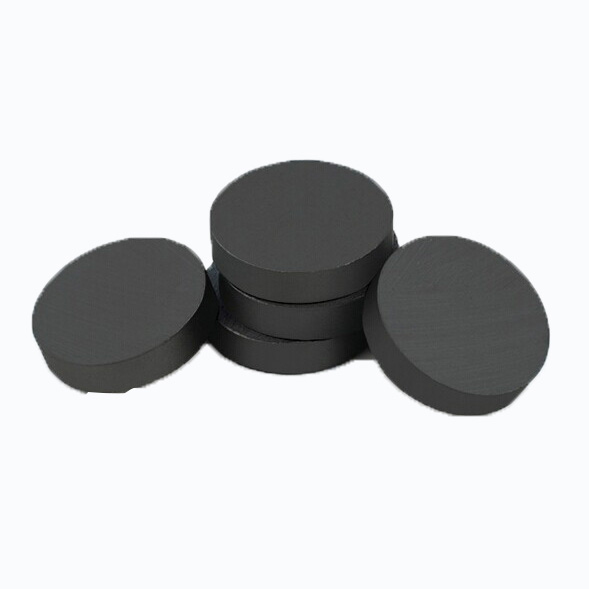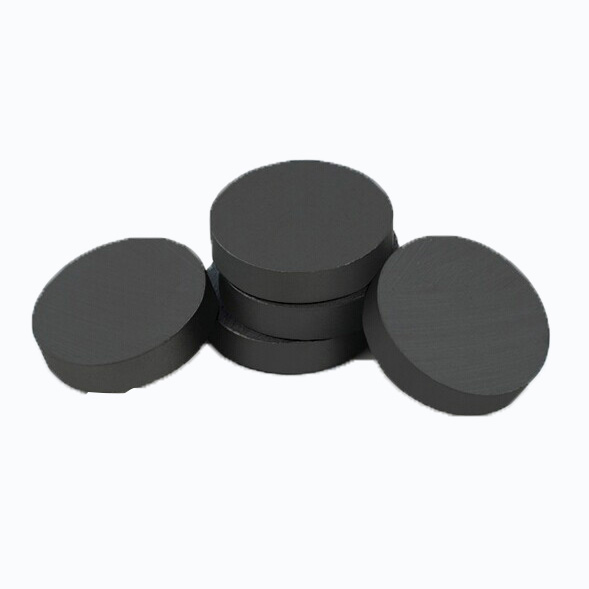


Custom Ferrite Magnets are high-performance, cost-effective permanent magnets made from a composite of iron oxide and barium or strontium carbonate. Known for their excellent resistance to demagnetization and corrosion, these magnets are widely used in motors, speakers, sensors, and industrial applications. They offer strong magnetic properties at an affordable price, making them ideal for bulk production. Customization options include various shapes (rings, blocks, arcs), sizes, and coatings to meet specific requirements. Ferrite Magnets are also environmentally friendly and operate efficiently in high-temperature environments.
Custom Ferrite Magnets are high-performance, cost-effective permanent magnets made from a composite of iron oxide and barium or strontium carbonate. Known for their excellent resistance to demagnetization and corrosion, these magnets are widely used in motors, speakers, sensors, and industrial applications. They offer strong magnetic properties at an affordable price, making them ideal for bulk production. Customization options include various shapes (rings, blocks, arcs), sizes, and coatings to meet specific requirements. Ferrite magnets are also environmentally friendly and operate efficiently in high-temperature environments.
Key Features
Custom Ferrite Magnets: Key Features and Technical Advantages
Ferrite magnets, also known as ceramic magnets, are widely used in industrial, automotive, and electronic applications due to their cost-effectiveness and reliable performance. Here are 4-6 key characteristics of custom ferrite magnets with precise technical data:
1. High Coercivity: Ferrite magnets exhibit intrinsic coercivity (Hci) ranging from 2,300 to 4,000 kA/m, ensuring excellent resistance to demagnetization even in harsh operating conditions. This makes them ideal for motors and sensors requiring long-term stability.
2. Temperature Stability: With a maximum operating temperature of +250°C and a reversible temperature coefficient of -0.2%/°C for Br (remanence), ferrite magnets maintain stable magnetic properties across a broad thermal range, outperforming many rare-earth alternatives in high-heat environments.
3. Cost Efficiency: Ferrite magnets offer the lowest cost per energy product at approximately $0.10-$0.30 per BHmax kJ/m³, making them 5-10 times more economical than neodymium magnets for applications where extreme strength isn't critical.
4. Custom Geometry Options: Available in anisotropic (oriented) grades with Br values up to 0.46 T (4,600 Gauss), they can be manufactured in complex shapes including arcs, blocks, and rings with tolerances as tight as ±0.05 mm for precision applications.
5. Corrosion Resistance: Unlike rare-earth magnets, ferrites require no protective coatings as they naturally resist oxidation, with less than 0.1% mass loss after 1,000 hours in 85°C/85% RH humidity testing per IEC 60068-2-78 standards.
6. Frequency Performance: With low electrical conductivity (<10-3 S/m) and eddy current losses below 5 W/kg at 50 kHz, they're exceptionally suited for high-frequency transformers and microwave applications.
Applications
1. Automotive Industry
Ferrite magnets are essential in automotive components such as alternators, starters, and sensors. Their high resistance to demagnetization and temperature stability make them ideal for electric vehicles (EVs) and hybrid systems.
These magnets power speakers, microphones, and small motors in household appliances like refrigerators and washing machines. Their affordability ensures mass production without compromising performance.
Wind turbines and solar panel systems utilize custom ferrite magnets in generators and inverters. Their corrosion resistance and longevity support sustainable energy solutions.
MRI machines and dental equipment rely on ferrite magnets for precise imaging and diagnostics. Their biocompatibility and stability are critical in healthcare applications.
Conveyor belts, pumps, and CNC machines incorporate ferrite magnets for efficient operation. Their robustness ensures reliability in harsh environments.
From magnetic closures in bags to toy assemblies, ferrite magnets enhance functionality in everyday products due to their lightweight and versatile design.
FAQ
Q: What are Custom Ferrite Magnets used for?
A: They are widely used in motors, sensors, speakers, and industrial applications due to their cost-effectiveness and durability.
A: They are made by pressing and sintering iron oxide with ceramic materials, then magnetizing them in a strong magnetic field.
A: They can be customized into discs, rings, blocks, arcs, or complex geometries based on application needs.
A: Yes, they naturally resist corrosion and don't require additional coatings like neodymium magnets.
A: They typically withstand up to 250°C (482°F) before losing magnetic properties.